A parent’s number-one concern is the health, safety, and well-being of their children. At a time when children are better at identifying pokemon than real animals, some wonder if kids are getting enough time outside. In the U.S., the average child spends about 4-7 minutes outdoors per day outdoors, compared to 7 or more hours in front of a screen. Considering the many ways that nature can improve our mental and bodily health, this question is increasingly important. In this post, we’ll learn about why kids should spend time in nature.
In his 2008 book, Last Child in the Woods, writer Richard Louv explained how children today suffer from “Nature Deficit Disorder”. Simply put, kids these days aren’t getting to spend the amount of time that their parents did. In fact, only one in five American children play regularly outside, compared to more than 80% of their parents’ generation.
But this isn’t just about missing out on tire swings and scraped knees. Kids get loads of benefits from spending time outside that boost their health, school performance, and development!
1. It improves self-control and behavior
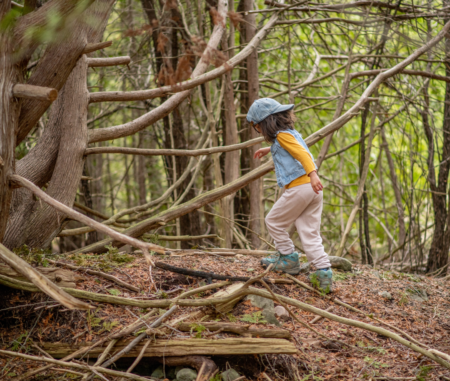
One of the most important skills for children to learn is self control. This will help them make better, more responsible decisions and accomplish long-term goals. Research shows that playing in outdoor spaces improves kids’ behavior and their ability to control impulses. This can make a big difference for their future!
2. It protects their vision health

An increasing number of kids worldwide are suffering from myopia or near-sightedness. Optometry research also shows that children who spend more time outside are less likely to develop near-sightedness. Increased exposure to natural sunlight can slow the onset of this vision problem, or halt it completely. This mean that fun time with your kids out in nature could save a lot of hassle and discomfort around visual impairment.
3. It makes better students

School is tough, and it’s also where many kids build their futures by learning valuable life skills. A recent review of scientific research found evidence that time in nature benefits kids’ performance in school in numerous ways:
- Boosting critical thinking skills
- Promoting problem solving
- Encouraging resilience and perseverance in the face of challenges
- Rejuvenating mental fatigue associated with school
Some of the most impressive research suggests that outdoor time improves kids’ cognitive function and learning, resulting in better performance on exams.
4. It alleviates symptoms of ADHD
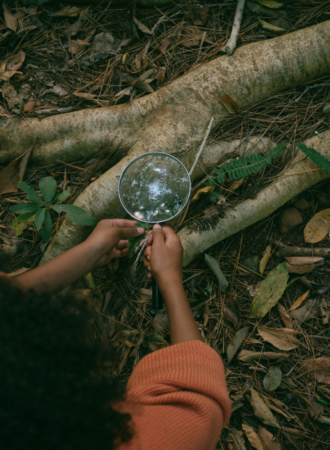
The benefits of connecting with nature are especially strong for neurodivergent people. Nearly 1 in 10 American children is diagnosed with Attention Deficit Hyperactivity Disorder (ADHD), making it one of the most common learning disorders. However, interaction with nature can help boost concentration and relieve ADHD symptoms in children. This is especially important for parents who are concerned about the side effects and complications of common ADHD medications.
5. Kids that spend time in nature are less stressed

Being a kid can be stressful! Because kids today have increasingly busy schedules, stress symptoms can be a common health problem. Increasing numbers of kids and adolescents report feeling sad or anxious. Remarkably, connecting with nature and spending outside time can help with this, too! Time outdoors has been linked to decreased feelings of stress and anxiety. This means that better access to outdoor places and more contact with nature could help kids manage daily stress.
6. Being outside makes kids more creative
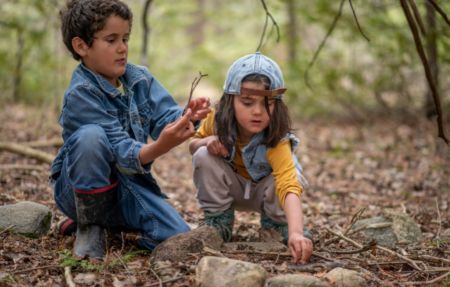
Going out in nature is a multi-sensory experience. Kids get to see, hear, smell, touch, and often taste things that they might not ever encounter. Furthermore, the natural world is filled with new experiences, sights, sounds, and so on. In fact, my recent TEDx Talk explains how it has been inspiring inventors and business leaders for centuries.
By helping your kids get outside, you unlock a world of possibilities for them. You let their imaginations soar, and their creativity with it. This fosters imaginative play, problem-solving, and other important activities. A stick might become a wizard staff, or a pine-cone a telephone. By spending time in nature, kids can learn to entertain themselves through their own creativity and not depend on media.
7. It helps kids be more active
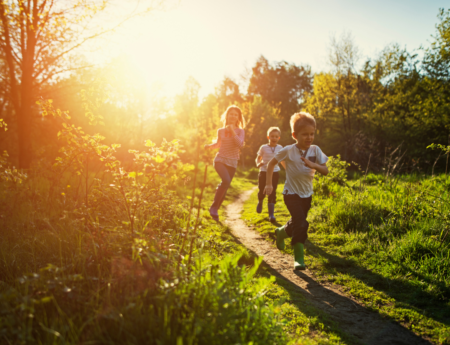
Children’s lifestyles are becoming less active in countries like the U.S. and Canada. Combined with the difficulties and expense of getting healthy food, this trend is fueling a health crisis. Obesity affects nearly 1 in 5 American children, and comes with a whole range of health risks.
If a child isn’t interested in sports or other conventional exercise, time in nature might make an excellent alternative. Even just taking a casual nature walk, I quickly find myself fascinated by things I find around me. Because of this, I end up walking around, backtracking, climbing trees, squatting down, standing up, taking erratic paths. Before I know it, I’ve taken thousands of steps. Although the pace is leisurely, even a sedentary naturalist gets plenty of movement in.
Meanwhile, kids outside do even more moving. Large spaces make them want to run and jump and climb things. If they’re with friends, they can come up with new games and co-explore their environment.
8. Outside time increases mood, self-esteem, and emotional well-being
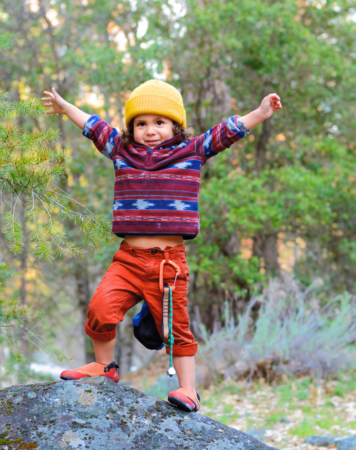
Above all, parents want their kids to be happy. Fortunately, connecting with nature can go a long way for that, too. Dozens of scientific studies link spending more time outside to positive moods and emotional well-being in children and teenagers. In turn, this greater sense of well-being and better mood lead to better self esteem and overall mental health. By getting some time to play and explore in nature, kids can be happier and more confident in their everyday lives.
9. It helps create the next generation of environmentalists
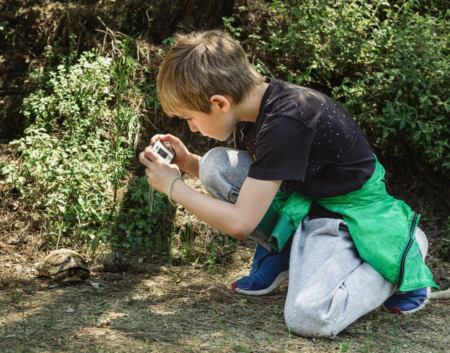
Many environmentalists are concerned by the phenomenon they call “shifting baselines“. This is when, generation by generation, people become increasingly accepting of environmental harm. When they pay less attention to nature, people are more likely to notice what we are losing. As a result, they aren’t outraged by the loss of habitats and biodiversity and don’t feel a need to do something about it.
With more and more of the world’s population in urban areas, we run the risk of having generations that are tuned out from the natural world. This means people who won’t vote or take action to protect it. Something like that could spell disaster for the environmental movement. However, children that get to have positive experiences outside are much more likely to care about wildlife and their habitats.
If you care about protecting our planet, raising the next generation of environmentalists is as important as anything you do today. By giving your children the joy of connecting with nature, you give them a lifetime of joy in the outdoors, and the passion to protect it.
Want to know more about the benefits of kids in nature?
Here are some additional sources for learning about why your kids should be in nature:
Bob from the Nature Guys Podcast did an awesome episode on “Kids in Nature” with an expert educator in 2022.
There are loads of other great books on the topic, including:
Thanks for reading about why kids should spend time in nature!
I hope you enjoyed this post! If you’ve got additional questions or want to share an experience you had getting kids into nature, let us know in the comments or using the Contact page. Want to keep in touch with Gulo in Nature? Connect with us on social media!

